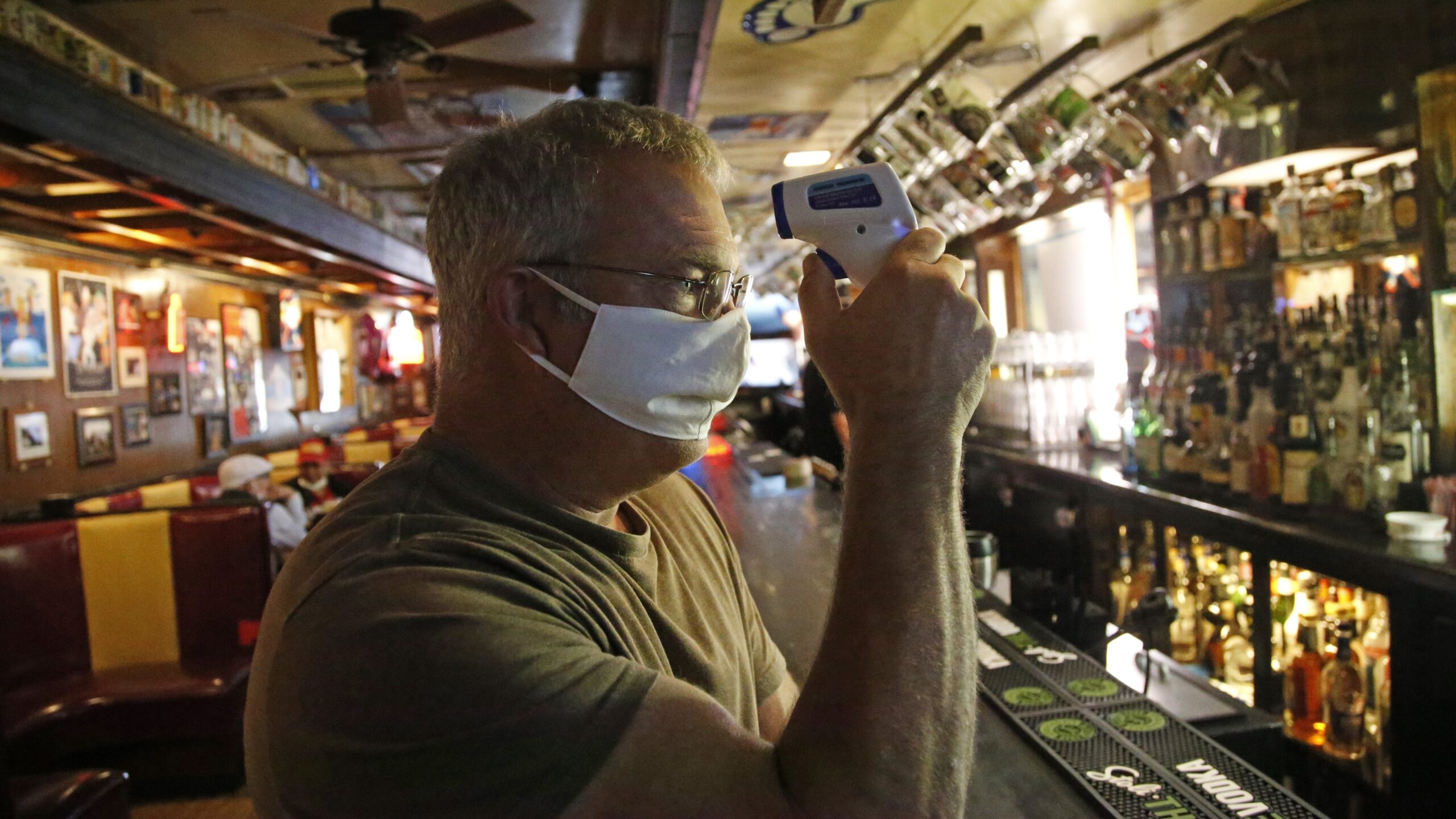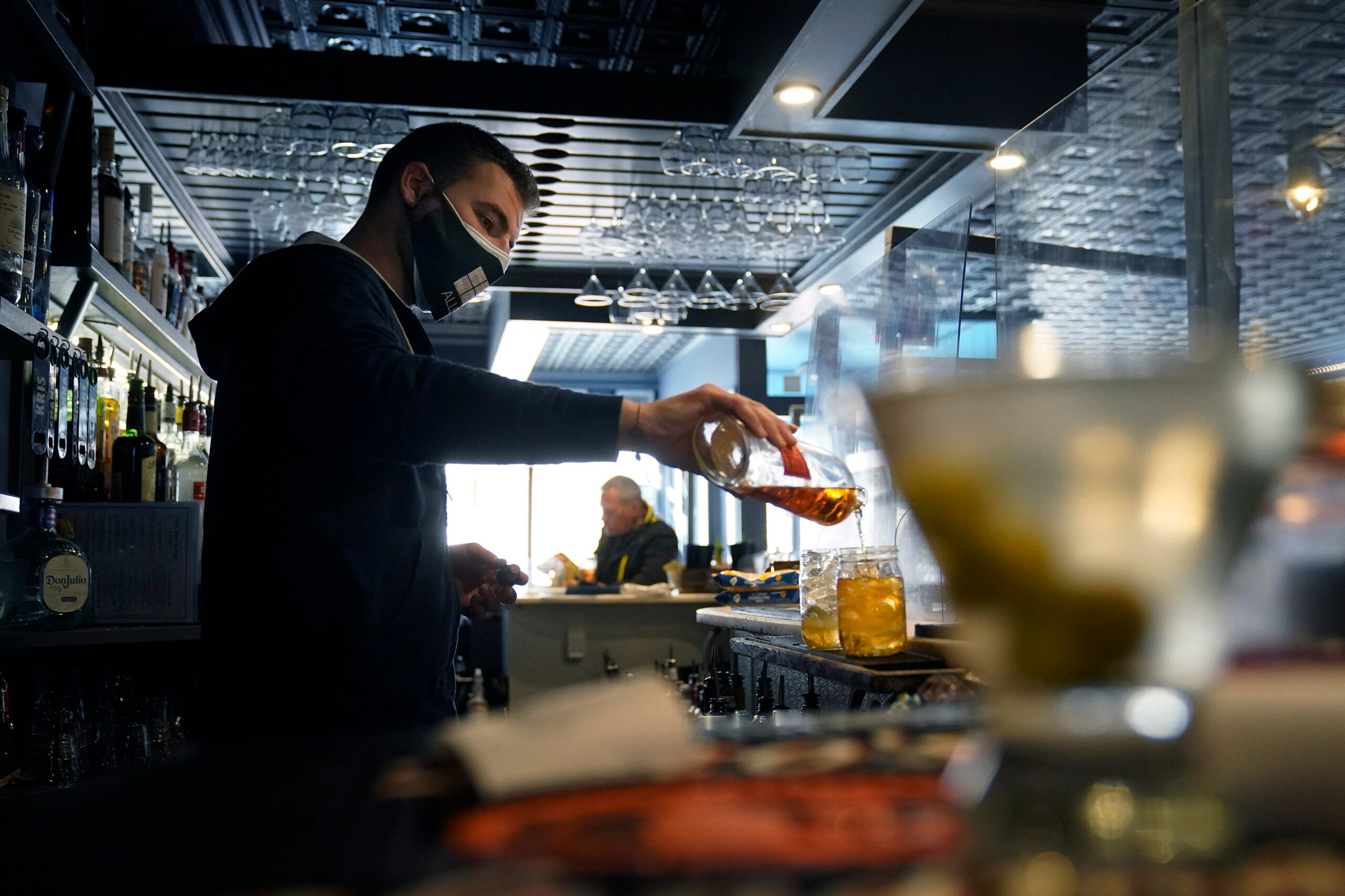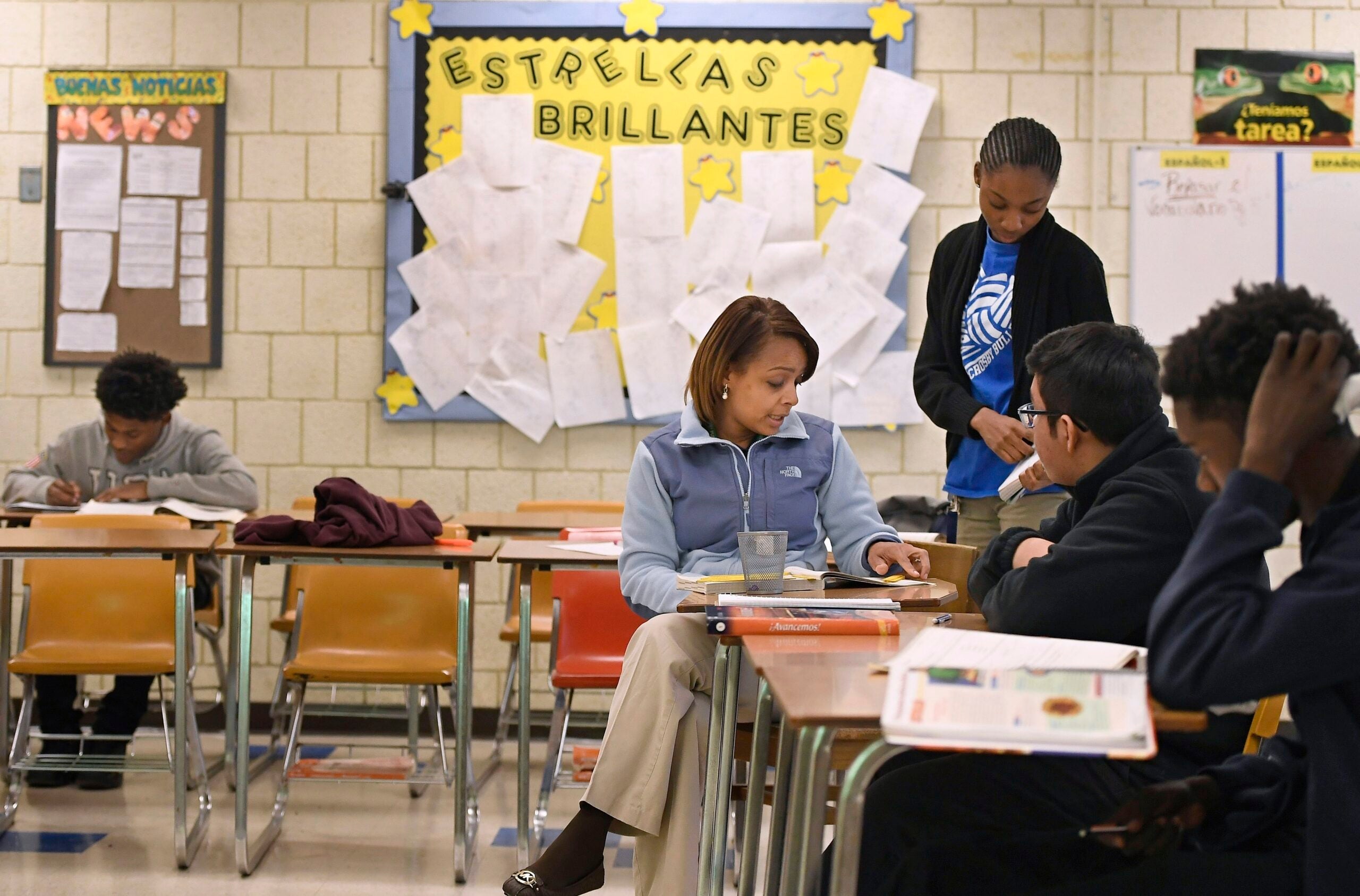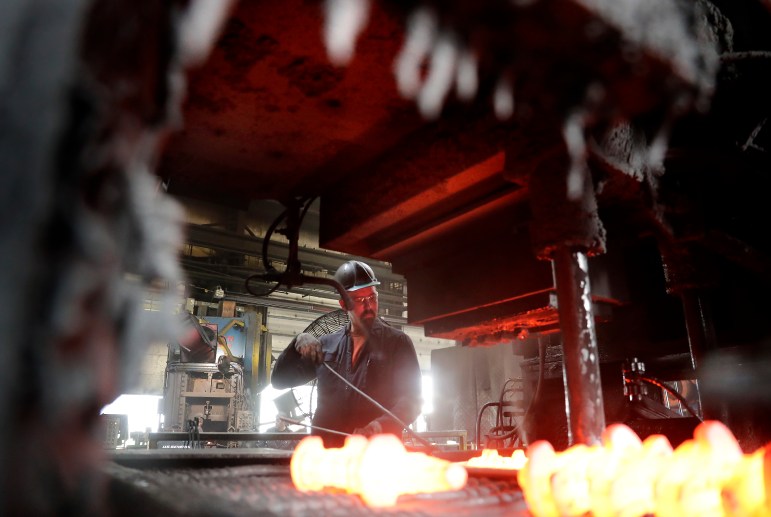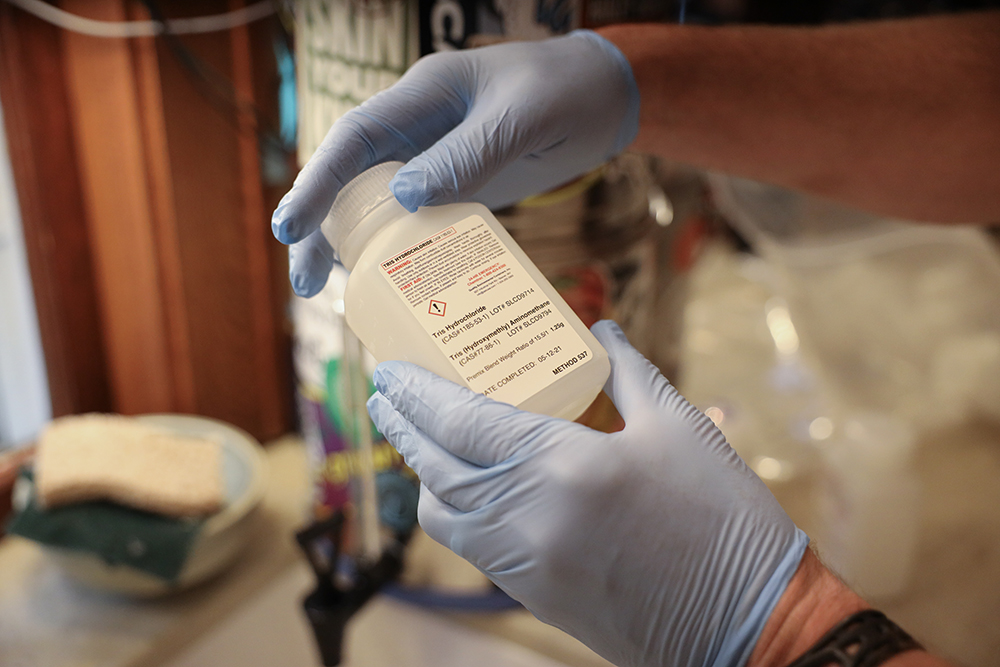When Kenosha’s Brat Stop reopened at 2 p.m. Friday, there was a line of people waiting at the door. About 75 percent of the cars in the parking lot had Illinois license plates.
Owner Deb Glembocki says that’s not unusual.
The iconic restaurant at Highway 50 and I-94 has been open since Glembocki’s late father, Gerald Rasmussen, started the business in 1961. And it’s always attracted residents from Illinois.
Stay informed on the latest news
Sign up for WPR’s email newsletter.
But now it is reopening during a pandemic. And Illinois has nearly eight times the number of positive COVID-19 cases as Wisconsin.
Glembocki said she wasn’t nervous about reopening during the coronavirus outbreak. But she is nervous about the image her business is presenting to customers.
“Obviously we’re doing all the constant cleaning, we do our best to get people to physically distance, but there were times when they just didn’t seem to care themselves, so it’s nerve racking for me that way,” Glembocki said. “Of, course, I care if I get sick, I care if anyone else gets sick, but I can’t control any of that stuff. Not really.”
Kenosha and Racine counties are two of the fastest growing areas in the state for coronavirus cases. On Monday, Kenosha County had 848 positive COVID-19 cases and 18 deaths, according to the state Department of Health Services.
Racine County had 1,034 positive COVID-19 cases and 18 deaths, according to DHS.
The rate of positive coronavirus cases as of Monday in Kenosha County is 504 per 100,000 people and in Racine County it’s 529 per 100,000 people, according to DHS.
By comparison, the rate is 38 per 100,000 people in La Crosse County; 102 per 100,000 people in Dane County; 525 per 100,000 people in Milwaukee County and 809 per 100,000 people in Brown County.
Meanwhile, Illinois had 94,191 positive COVID-19 cases as of Monday, according to the Illinois Department of Public Health. Lake County, which borders Kenosha County, had 6,489 coronavirus cases.
When the Wisconsin Supreme Court overturned the state’s “Safer at Home” order last week, several cities and counties, including Milwaukee and Dane counties, enacted their own orders.
Racine and Kenosha counties briefly issued stay-at-home orders but rescinded them Friday after receiving legal interpretations from their corporation counsels that showed the court’s ruling also applied to county health officers.
“Sadly, Kenosha County remains far from being out of the woods with COVID-19,” Kenosha County Health Officer Jen Freiheit said in the county’s statement issued Friday. “It is our hope in the public health world that our community will continue to take the threat of the virus seriously and take precautions to slow its spread as we enter this next phase of reopening our economy.”
Glembocki, at the Brat Stop, knows infection rates are growing in Kenosha and the number of infections are much higher in Illinois. But she said if her business hasn’t reopened, they would have been in trouble.
“Yes, we got a PPP (Paycheck Protection Program) loan but it’s only supposed to be used for paying your employees,” she said. “I can pay my employees to paint and clean and whatever else, but if we don’t open, what do I do after that?”
Glembocki said Memorial Day weekend will be packed. And for Illinois residents, the Brat Stop is “Up North” for a lot of people.
“Am I concerned?” Glambocki said. “No. Right or wrong, it’s going to happen. This virus isn’t going to disappear.”
Route 20, a restaurant and bar located at Highway 20 and I-94 in Racine, is planning to open as soon as renovations are complete. Over the weekend, the patio was open.
Because of the location, Route 20 draws guests from across Wisconsin, Illinois and several other states. Manager Rachel Slavik said she’s not worried about reopening, but wants to make sure all of the health guidelines are being followed.
“You know, keeping 6 feet apart and making sure we are wiping stuff down immediately,” Slavik said. “When we were on the patio we were using all plastic silverware that was wrapped. None of this has been fun. Everyone is affected greatly. The bills keep coming in and there is no money to pay them.”
Wisconsin Public Radio, © Copyright 2025, Board of Regents of the University of Wisconsin System and Wisconsin Educational Communications Board.
